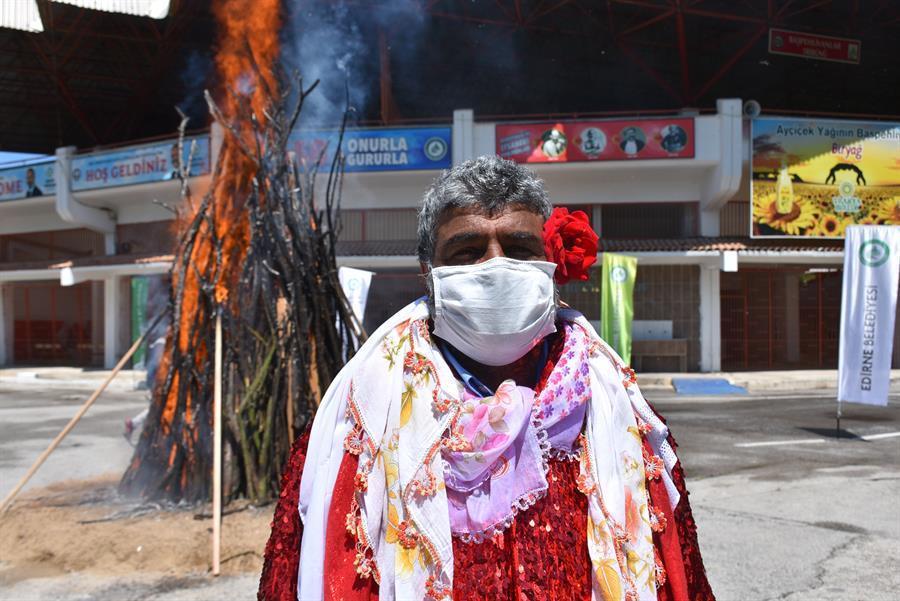
Turkish communities around the world have celebrated Hıdrellez with joy, but this year devoid of the colorful ceremonies that would normally have echoed across many of the nations.
This year, in an effort to prevent the virus’ spread, events and festivals were canceled, rescheduled, or modified.
The novel coronavirus forced the cancellation of normally well-attended events of Hıdrellez, a traditional festival observed in several countries every year on May 6.
The tradition of Hıdrellez, seen in Anatolia as the day when the Hızır, a legendary Islamic figure endowed with immortal life, and İlyas, who appears in the Quran as a prophet, meet on Earth, has been passed down from generation to generation for centuries.
The day, which is celebrated with vivid events every year in the northwestern province of Edirne, which is predominantly populated by Roma and Balkan people, has been marked with symbolic celebrations – in isolation – this year.
For the continuation of the Kakava Festival tradition, where the awakening of nature is celebrated with the wish of abundance and fertility, only the Kakava fire was built this year.
Meanwhile, main opposition Republican People’s Party’s (CHP) chair Kemal Kılıçdaroğlu has wished the nation a happy Hıdrellez.
“I want a country where there is no pain in the head, no yearning in the heart, and an end to brothers’ quarrels,” Kılıçdaroğlu said on his Twitter account, citing a poem of the famous Turkish poet Cahit Sıtkı Tarancı.
“I hope that Hıdırellez is an occasion for such a country and hopeful future. I wish all our citizens a healthy and peaceful future in which they live together,” Kılıçdaroğlu added.
Spring festival of Hıdrellez
Hıdrellez, a combination of names Hızır and İlyas, is celebrated as a spring festival in Anatolia, Crimea and Azerbaijan, as well as in some Middle Eastern and Balkan countries.
According to Turkey’s Culture and Tourism Ministry, there is a variety of beliefs about the roots of the tradition of Hızır and Hıdrellez.
Some believe that they derive from Mesopotamian and Anatolian cultures, while others argue that they are a part of pre-Islamic Central Asian Turkish culture and beliefs.
May 6, representing the end of winter and start of summer, is a reason to celebrate, the ministry said.
In the evening of the day before Hıdrellez, people write or draw their wishes, such as a home, car or child on a paper and attach it to a branch of a rose tree or bury it under the tree, while some throw it into a sea or a river.
Some also bury money under a rose tree for abundance.
Meanwhile, it is considered that eating the first lamb of spring leads to health and recovery.
Another belief is boiling flowers or plants and drinking the water to heal diseases, and that the water makes people rejuvenate and beautiful if they wash themselves with it for 40 days.
This spring festival was added to the UNESCO’s list of “intangible cultural heritage” in 2017.